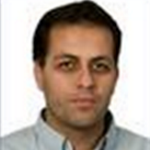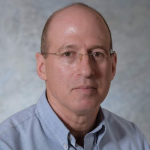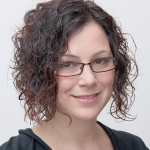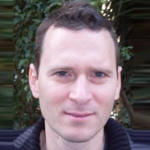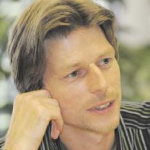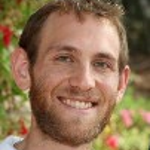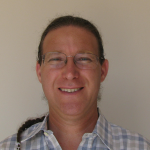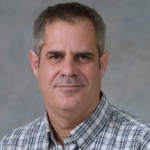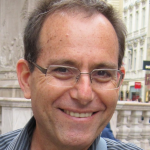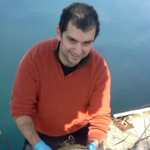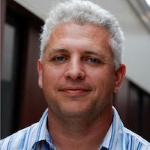Lab
Come visit us. Capsula is located at the Porter School of Environmental Studies, an iconic Tel Aviv building, located on George Wise Street, across from campus Gate 14 (outside the campus). Find us easily using Waze or Google Maps.
Projects:
|
|
Intelligent Speed Adaptation in Heterogeneous Road NetworksJamal Raiyn, PhD |
||
|
Various forecasting schemes have been proposed to manage urban road traffic data, which are collected by different sources such as, traditional on-road sensors (e.g., inductive loops), videos cameras, sensors and mobile phone services. These are not sufficient for the purpose because of their limited coverage and high costs for installation and maintenance. To overcome the limitations of these tools, we considered a hybrid scheme based on intelligent transportation system (ITS) and global navigation satellite system (GNSS) applications. The goal of applying the GNSS to calculate travel time has proven efficient in terms of accuracy. GNSS products provide worldwide and real-time services using precise timing information and, positioning technologies. |
|||
|
|
Effects of stream-wise vortices on heavy vehicles’ Aerodynamic drag and fuel consumptionProfessor Avi Seifert, Meadow Aerodynamics lab., School of Mech. Eng., Faculty of Engineering |
||
|
The invention improves the flow of air around the aft (rear) section of trucks and other blunt road vehicles (such as SUV's). A small add-on device incorporates a novel air flow control actuator which generates suction and pulsed blowing oscillations, forcing the air to conform to the shape of the add-on device and reducing drag. This is most relevant to vehicles traveling at highway speeds for longer distances. When the shape of the vehicle allows the install or can be modified to accomodate the system, then the system can become an intergral part of the vehicle features. Several patents are granted and a few more in evaluation process. |
|||
|
photo |
Analyzing socio-spatial characteristics of households' transportation related energy consumption at the sub-urban scaleDr. Meidad Kissinger, The Sustainability and Environmental Policy Group. The Geography and Environmental development, Ben-Gurion University of the Negev |
||
|
Transportation has been widely acknowledged as a single activity responsible for consuming significant portion of the world's oil and a major source of domestic and global emissions influencing human health and global environmental systems. Households'private transportation related energy consumption and the potential to advance energy efficiency is shaped by a series of socio-economic as well as spatial - urban factors that influence the way each of us use energy. The research examines the extent to which those factors are shaping households' transportation related energy consumption by urbanites in Israel. It will advance our understanding of current use of private vehicles related energy; identify the contribution of each shaping factor; and will examine whether suggested efficiency approaches actually reduce the use of energy. |
|||
|
|
Urban Traffic Control System based on Real-Time Identification of BottlenecksEfrat Blumenfeld-Lieberthal, Arch, PhD. Senior Lecturer at the Azrieli School of Architecture (currently visiting academic at CASA UCL) |
||
|
The core objective of this proposal is to develop an innovative simulation model of an adaptive Urban Traffic Control (UTC) system that can achieve optimal traffic flow with regards to the dynamic behavior of urban traffic in real time, and based on this UTC system to explore different strategies of dealing with traffic congestion which is one of the most severe problems of life in the 21st century cities. In the proposed system the information is collected from individual drivers and analyzed by the control system that considers the entire traffic-lights network and its bottlenecks. This analysis leads to an adaptation of the system which in turn affects the behavior of the drivers. The process continues in a circular causality until an optimization is reached. |
|||
|
photo |
A Novel Management Tool for Transportation Safety and Road Environmental Impact using Advanced Remote-Sensing Meanscarmonmon@gmail.com |
||
|
|
|||
|
|
Simulation-based Optimization of traffic signal plans to reduce Energy Consumption and Traffic EmissionsProf. Tomer Toledo, Transportation Research Institute and Faculty of Civil and Environmental Engineering, Technion – Israel Institute of Technology |
||
|
Traffic signal control is the main tool for operators and managers of transportation systems to allocate capacities and affect the state of the system and its performance. In support of the design process, this research aims to develop an optimization model for sustainable actuated traffic signal control that includes transit priority functions. The optimization will take into account delays to road users, in particular transit vehicles, fuel consumption and emissions. This can be achieved using an integrated simulation-based model system that incorporates a stochastic traffic simulation model for signalized intersections, energy consumption and emissions models and an appropriate optimization method. The system would be able to simultaneously optimize the signal parameters within complex actuated traffic signal plans with transit priority. |
|||
|
photo avigal@ie.technion.ac.il |
Multi Modal Routing Research Application |
photo shiftan@technion.ac.il |
|
|
|
|||
|
|
Planning for the (e-)bicycleKarel Martens, Associate Professor |
||
|
This project will develop a novel approach to infrastructure planning for emerging modalities. The proposed approach is informed by a bottom-up understanding of residents’ mobility demands, needs, and preferences, and top-down analyses of residents’ current travel behavior. In doing so, the process of providing and upgrading infrastructure facilities moves from a homogeneous, top-down, engineering approach to one that is heterogeneous and socially-informed in character. A proof of concept exercise will be developed and tested for the e-bike, which use is growing rapidly in Israel. The project will contribute to an adaptive form of urban infrastructure planning for e-cycling, and hence to a more rapid transition to energy-efficient mobility in the implementation cities. |
|||
A Demand Responsive Feeder Service for Train StationsShlomo Beychok, Prof. Hillel Bar-Gera, Dr. Tal Raviv, Prof. Gad Rabinowitz |
|||
|
Shlomo Beychok |
Prof. Hillel Bar-Gera |
Dr. Tal Raviv |
Prof. Gad Rabinowitz |
|
Demand Responsive Transit (DRT) is a form of flexible public transportation in which the routes and schedules are determined per ride. Users place travel requests and the system coordinates the optimal combination of trips that best satisfies the needs of the users within the given constraints. Rail networks often lack first and last mile connectivity. We propose a DRT system that serves as a feeder service for train stations. An optimization model is introduced to evaluate its effectiveness and its advantages as compared to other alternatives. The model takes into account a wide range of parameters, and its objectives are to minimize passenger waiting and travel times, total distance traveled by the vehicles, fuel consumption, pollution, and parking costs. |
|||
|
Alexander Golberg |
Off-shore floating system for intensive cultivation of macroalgae for transportation biofuel production.Dr. Alexander Golberg. Senior Lecturer. Porter School of Environmental Studies. Tel Aviv University Prof. Alexander Liberzon. Associate Professor. School of Mechanical Engineering, Department of Engineering. Tel Aviv University |
Alexander Liberzon |
|
|
Production of energy and food is a major challenge for the world for the next 50 years.Biorefining is one of the pathways to convert solar energy into these useful products. Biorefinery integrates the capture of solar energy and carbon dioxide (via photosynthesis), biomass harvesting, processing, and distribution of derived chemicals and bioenergy. Current strategies for food production and renewable energy generation reply mostly on the classic terrestrial agriculture.However:A key issue for biomass production in Europe is land availability. The goal of this project is to develop an off-shoremacroalgae biomass cultivation system based on the efficient mixing for bioethanol production.Once available this system will be integrated in the value chain of global biomass to biofuel industry and will provide an attractive, sustainable and completely new approach for the bioenergy resources harvesting. |
|||
Predictive Navigation In The City |
|||
|
Eng. Zachi flatto Ceo & co-founder |
Ram hardy Cto |
Dr. Evgeny medvedev Navigation pro |
Prof. Itzhak benenson Co-founder |
|
Parklife predicts different spatial behaviors including demand for transportation based on the mapping of a city. We predict availability of on-street parking at a particular day/time without the need for external feed. The prediction is based upon GIS (Geographical information) analysis and the statistical relationships between the parking supply /demand as well as drivers’ decision making process while taking into account parking availability, regulations and costs. Parklife route significantly reduces search time when compared to ‘traditional’ navigation tools (Google Maps in test drives case). Traditional tools take the driver to the final destination without any consideration of parking needs, supply and availability. Our technology is based on extensive study performed in Tel-Aviv University, this study resulted in a model which simulates mobility behavior in urban areas. |
|||

